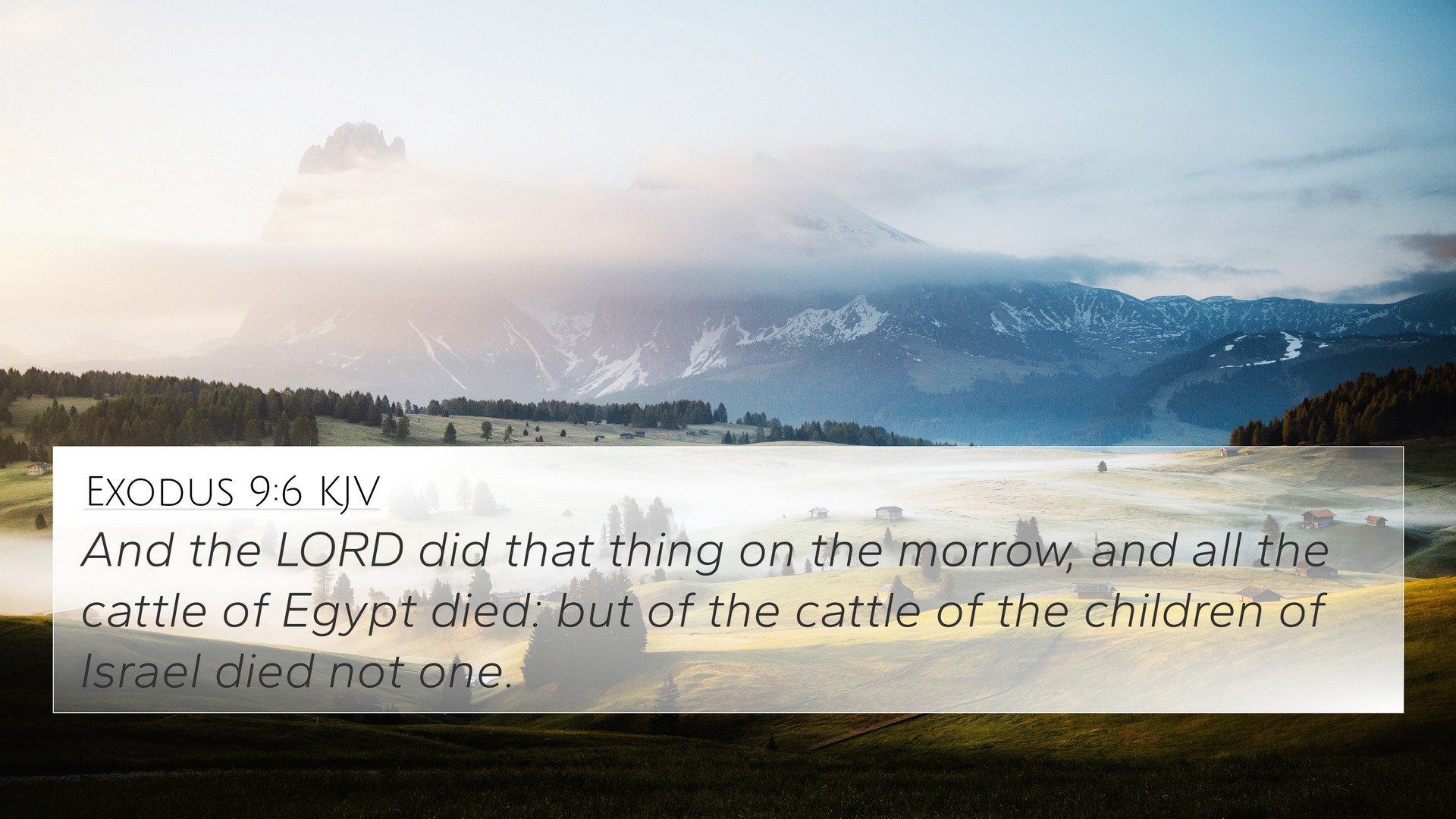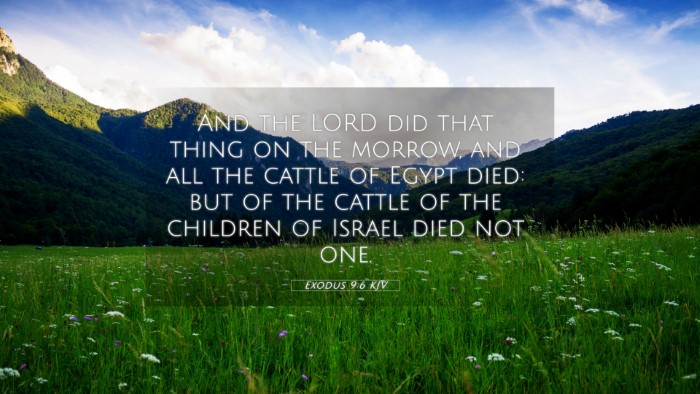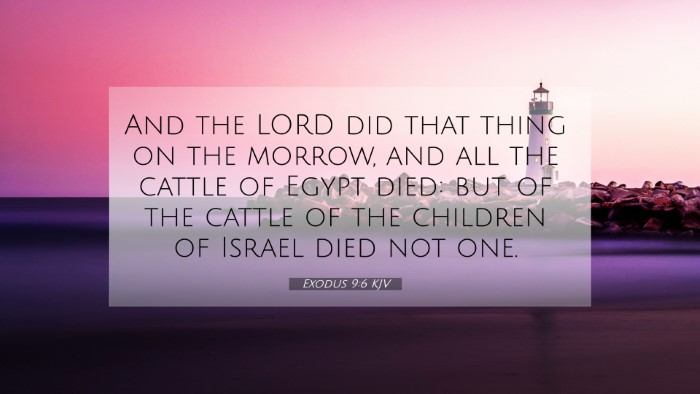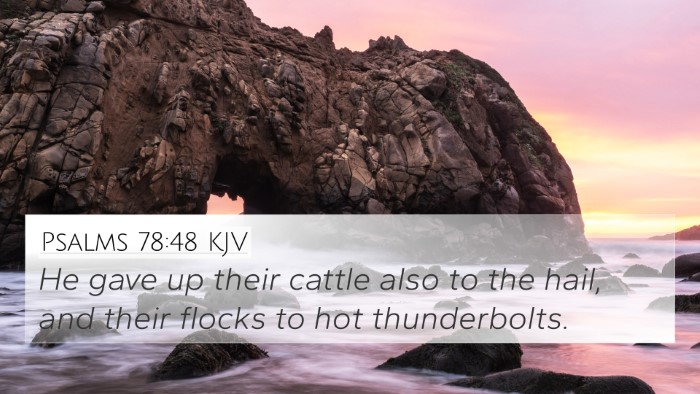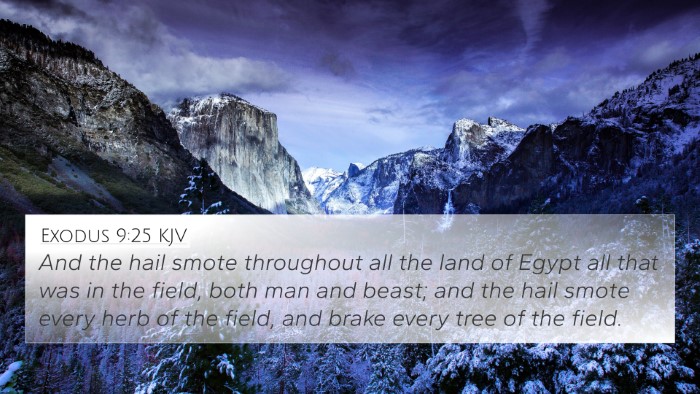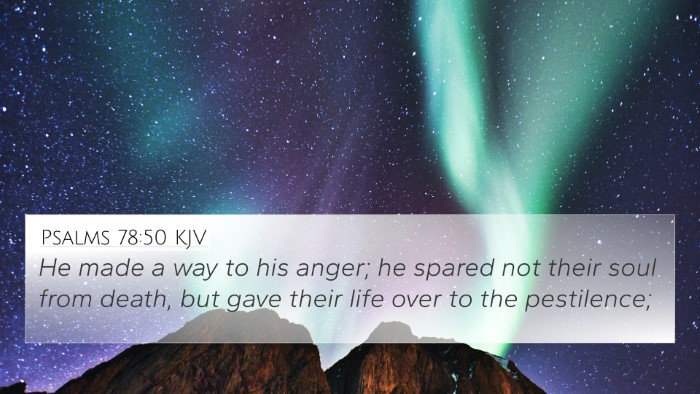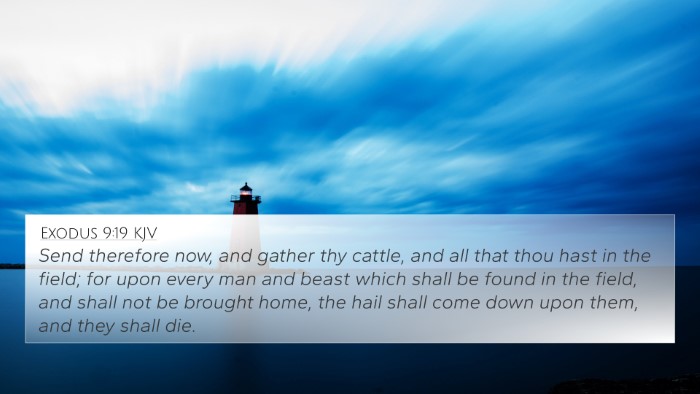Understanding Exodus 9:6
Exodus 9:6 states: "And the Lord did that thing on the morrow, and all the cattle of Egypt died: but of the cattle of the children of Israel died not one." This verse is significant in the context of the plagues of Egypt and the power of God over Pharaoh and the Egyptian gods. Below is a comprehensive summary of its meaning derived from public domain commentaries, organized for better understanding.
Contextual Overview
This verse occurs during the sixth plague, which was the death of the livestock in Egypt. The narrative focuses on God's ability to distinguish between the Egyptians and the Israelites, showcasing His protection over His chosen people amidst severe judgment on those who oppress them.
Commentary Insights
-
Matthew Henry:
Henry emphasizes the demonstration of God's power and sovereignty. The death of livestock served as a divine judgment against the Pharaoh and the Egyptian deities that were believed to protect them. God’s selective judgment underscores His will to free His people from bondage.
-
Albert Barnes:
Barnes highlights the miraculous nature of the event, noting the clear distinction made by God between the Egyptians and the Israelites. The absence of deaths among the Israelites' livestock further signifies God's covenant loyalty and protective hand over His people.
-
Adam Clarke:
Clarke comments on the logistical aspects of the event, pondering the implications of such a widespread plague. He notes that the Egyptians had relied heavily on livestock for agriculture, trade, and daily living, which amplified the severity of the judgment.
Theological Implications
The passage highlights themes of justice, mercy, and divine sovereignty. God’s capacity to execute judgment while providing protection stresses the nature of His relationship with humanity:
- God's Sovereignty: God orchestrates events to fulfill His will and purpose.
- Divine Justice: The plagues serve as just retribution for Egypt's oppression of the Israelites.
- Covenant Faithfulness: God honors His covenant with Abraham, Isaac, and Jacob by sparing His people from judgment.
Cross-References
This verse can be linked to various other scriptures that underscore similar themes:
- Exodus 8:23: God distinguishing between His people and the Egyptians.
- Exodus 9:4: The Lord's protection over Israel as specific livestock remain unharmed.
- Psalm 105:36: Referring to the judgments God executed upon Egypt.
- Romans 9:17: God’s purpose in raising Pharaoh to showcase His power.
- Matthew 10:29-31: God's care and attention to His people, likened to sparrows.
- 2 Corinthians 6:17: The separation of the holy from the unholy.
- Revelation 18:4: The call for God's people to come out of Babylon, echoing the theme of separation.
Conclusion
Exodus 9:6 illustrates a pivotal moment where God’s judgment is met with His protection, reinforcing the relational dynamic between the Creator and His chosen people. This verse invites readers to reflect on the significance of divine intervention in history and encourages a profound understanding of the Biblical narrative.
Further Study Tools
To delve deeper into the connections between these verses and enhance your understanding, consider utilizing:
- Comprehensive Bible Cross-Reference Materials
- Bible Concordance for thematic studies
- Bible Chain References for structured exploration of verse relationships
- Cross-Reference Bible Study guides to facilitate personal study
Related Studies
Those seeking to identify connections between Old and New Testament Scriptures may find value in:
- How to find cross-references in the Bible: Understanding the structure of Biblical texts.
- Comparative study of Pauline epistles: Linking themes present in apostolic teachings.
- Cross-referencing Psalms with New Testament teachings: Insights into the unity of Scripture.
This passage invites further contemplation of God's actions throughout history and challenges readers to seek a deeper relationship with Him through His Word.
